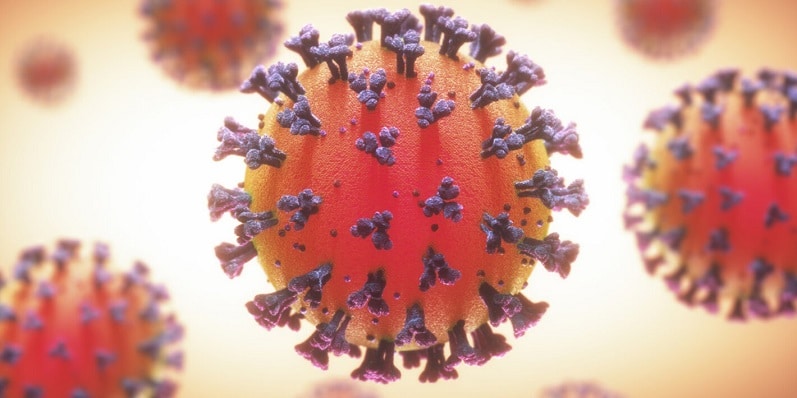- It’s been believed that mask putting on mainly benefits the folks surrounding you.
- However, scientists are starting to take a position that masks also may help the wearer.
- You are able to that the lower viral dose can result in more gentle illness.
- Putting on a mask may reduce the quantity of virus that will get right through to the wearer.
- Less virus during may mean more gentle illness should you choose become sick.
Until recently, scientists have believed that the primary benefitTrusted Supply of putting on a mask would be to safeguard others.

Now, however, many are starting to speculate that mask putting on may provide a kind of protection for that wearer too.
They are saying that masks may reduce the quantity of virus that will reach an individual, potentially resulting in more gentle illness should you choose become infected.
Which means that COVID-19 might be able to spread all through the populace, getting us nearer to herd immunity, without having affected people as badly because it otherwise would.
Actually, mask putting on might be one good reason we view a lot of installments of mild and asymptomatic illness.
How masks safeguard others
COVID-19 is thought to be spread through the virus-that contains dropletsTrusted Source which are released when individuals speak, cough, or breathe.
If these tiny droplets land in someone else’s mouth or nose or are inhaled in the air, they are able to infect that individual making them sick.
Based on Robert F. Garry, Junior., PhD, professor of microbiology and immunology, at Tulane College Med school, a mask supplies a physical barrier to trap individuals tiny droplets.
Actually, cloth masks can block about 40 to 60 % from the tiny droplets, stated Garry.
N95 masksTrusted Source can perform a much better job, blocking 95 % of really small particles, including infections.
Masks capture these tiny droplets before they are able to achieve others and infect them.
How masks might safeguard the wearer too
Garry stated it is going to the concept that how big the inoculum (the dose from the virus) determines how sick a person can get.
Usually, with infections, the greater the dose, the earlier signs and symptoms develop and also the more serious the condition is, he described.
Based on this concept, Monica Gandhi, MD, Miles per hour, and her colleagues in the College of California, Bay Area, have suggested that mask putting on may help reduce the seriousness of COVID-19 when individuals do get ill.
If your lesser volume of respiratory system tiny droplets pull through towards the mask wearer, what this means is they get a lower dose from the virus.
A lesser dose implies that, whether or not the person becomes ill, it might not be as severe a situation.
Gandhi noted that there’s evidence within the literature indicating this may indeed be happening with COVID-19.
Inside a recent hamster study that simulated masking, the “masked” hamsters were less inclined to get COVID-19. Additionally they had milder disease once they ended up getting it.
Additionally, epidemiologic evidence in settings like luxury cruise ships and food processing plants has proven greater rates of asymptomatic infection after mask mandates were implemented.
She also pointed to some paperTrusted Source that implies that universal masking in situations like hospitals has brought to asymptomatic infections. Based on the paper, many healthcare workers have experienced positive antibody testing for COVID-19 although the workers didn’t know they were infected.
Finally, she stated, many countries which have population-level masking did better at keeping their rates of severe disease and dying lower.
How mask putting on might help basically we wait for vaccine
Gandhi stated she believes population-wide masking could play a huge role to get us with the pandemic.
Masks reduce transmission, she stated. She and her team also believe they are able to reduce the seriousness of disease when individuals do become infected.
“We suggest mask mandates such as the one known as for by former VP Joe Biden,” she stated.
She also feels that universal masking is really a strategy that could allow work and college to carry on.
Instead of closing everything lower when new cases emerge, Gandhi shows that a much better plan could be to monitor for upticks in certain illness, hospitalizations, and dying before instituting lockdowns.
We might see cases, she stated, “but, as lengthy because they are asymptomatic, public medical officials ought to be concentrating more about decreasing rates of morbidity out of this infection and monitoring carefully for certain illness, not asymptomatic disease.”
Inside a report printed within the Journal of General Internal Medicine on September 8, 2020, Gandhi’s team further noticed that asymptomatic infections could really be advantageous towards the general population.
“Exposing society to SARS-CoV-2 [herpes that triggers COVID-19] with no unacceptable effects of certain illness with public masking can lead to greater community-level immunity and slower spread once we await a vaccine,” the authors authored.
The conclusion
Besides mask putting on safeguard individuals around us, this may also safeguard us.
A lesser viral dose is proven to be associated with more gentle illness.
Masks may lessen the dose, resulting in milder, or no signs and symptoms, when we do contract COVID-19.
Universal mask putting on can enjoy an important role basically we wait to add mass to a vaccine. It may slow transmission and could possibly reduce the seriousness of illness, easing the responsibility on society.